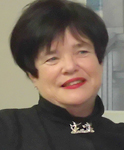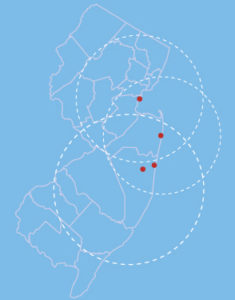The Impact of Neurodiversity on Special Needs Education

Imagine a world where the neurological differences among people are recognized and respected. These differences are part of our genetics and our evolution as a species. This is the concept of neurodiversity.
Autism is not an error. It is merely the result of variations in the human genome. In a more tolerant and accepting society, neurodiversity would be celebrated. We would shout about it from the mountaintops.
For now, we choose to share some of its advantages here with you:
High Expectations
Levels of student achievement tend to be as high or low as teachers’ expectations. This has been a fact known to all educators. Teachers of students with special needs who believe in neurodiversity will start with their students’ strengths. Those children will come to see their gifts and abilities as a means to cope with their challenges. Most importantly, they will rise to the expectations of their teachers.
Change the Paradigm
High expectations will also help us change the deficit paradigm. A deficit paradigm has been established in the field of special education because of a long history of focusing on the negatives. It is unfortunate but terms such as “moron”, “feeble minded”, “minimally brain damaged” and “educationally handicapped” were used by special needs educators up until the latter half of the 20th century.
We can replace this paradigm with a growth paradigm by starting to recognize that people with neurodiversities are emerging at the top of such fields as information technology, entrepreneurship and science. They are contributing to a society that could use all the help it can get.
The Inclusion Movement
Inclusion is not just about race or sexuality. Students with special needs also benefit from being included. The sooner that regular classroom teachers cease to see the inclusion of neurodiverse students as a burden, the sooner they will see their classrooms benefit from their positive qualities, attributes and contributions. Those kids will then start forming friendships with neurotypical kids. They will begin to keep up with the curriculum and learn important academic skills.
Anti-Bullying
The social, emotional and behavioral problems caused by bullying are pervasive and by no means limited to special needs children. Bullies simply target those who they perceive to be weaker than they are. What better way to teach bullies the error of their ways than to project a powerful image of neurodiversity? If a bully’s scorn, fury and manipulation is born of a perception, why not change it or counter it with a different one?

Alpha School an private special education school in New Jersey
Our Mission at The Alpha School is to help all of our special needs students with the learning, social, language, and behavioral support they deserve. Our highly skilled staff are committed daily to helping each student to becoming the best they can while providing a safe and nurturing educational environment.
We would be more than happy to discuss your child’s specific needs and challenges, so please call us at 732.370.1150, or request a tour of Alpha School of Jackson, NJ located just minutes off of Route 9 and Route 195 in Ocean County.
— Monica DeTuro, Principal-Alpha School, Jackson, NJ
About RKS Associates
At all the RKS Schools we pride ourselves in discovery the hidden treasures of all of our students. Our academic and support services are appropriately customized for a student unique and diverse needs so that they can reach their full potential.
Alpha School is part of special needs network of schools located in Monmouth, Middlesex and Ocean County New Jersey. Since 1980 the RKS Associates schools have been leaders in helping special needs helping students with various disabilities including autism, Down's syndrome, communication, learning, social, behavioral and emotional disabilities. The range of services RKS schools provide is academic instruction and speech, occupational and physical therapies. In addition to Life Skills, Technology, and a full complement of Support Services.



